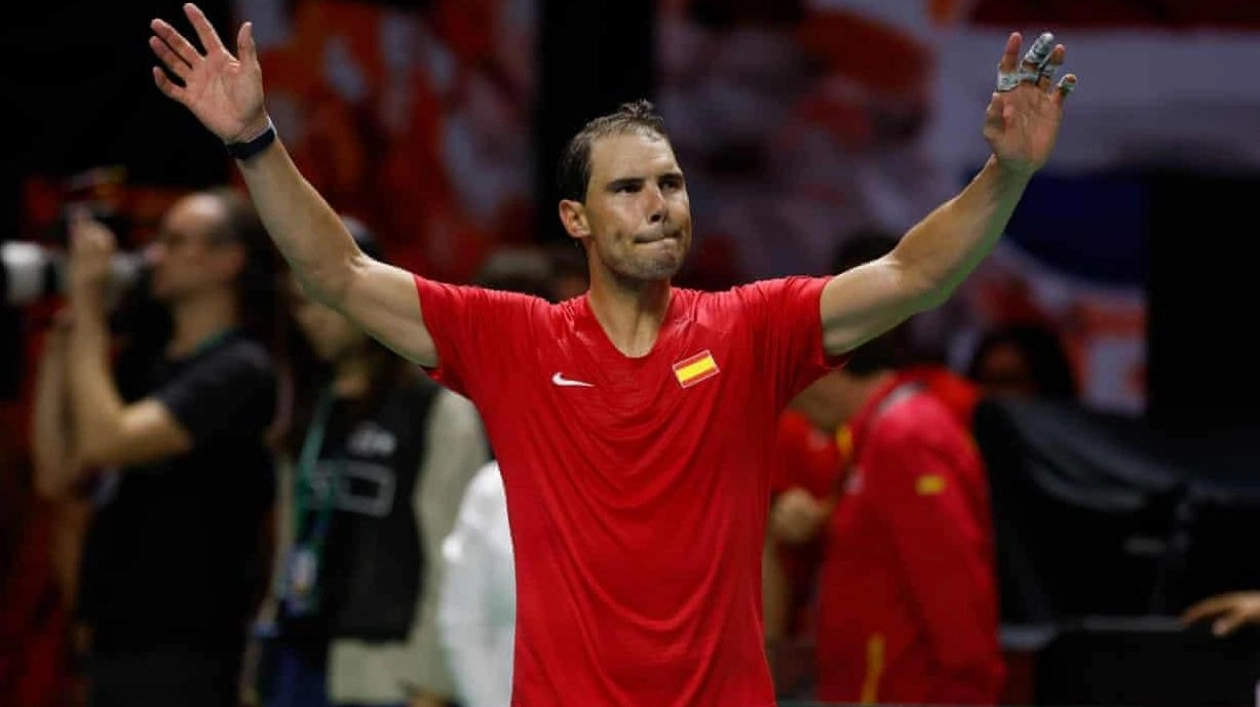As the Spanish national anthem echoed for what might be the last time in his illustrious career, Rafael Nadal's emotions couldn't be contained. Tears filled his eyes, and his hands trembled visibly. The final chapter of his 30-year journey had begun, a moment he dreaded but couldn't avoid. The crowd, moved by his visible distress on the big screen, responded with deafening chants of 'Rafa! Rafa!'
Despite the relentless support from the stands, Nadal's battered and bruised body couldn't push beyond its limits. He fought every point with the tenacity that has defined his career, but was ultimately defeated 6-4, 6-4 by Botic van de Zandschulp in the opening Davis Cup match between Spain and the Netherlands. This loss carries significant weight in the twilight of Nadal's career; it marks his first singles defeat in the Davis Cup in 20 years, ending a 29-match winning streak. His last loss in this competition was in 2004 during his debut.
The days leading up to this farewell have been surreal and intense for Spain's greatest athlete. The streets around the arena are adorned with as many tributes to Nadal as they are with Davis Cup advertisements, highlighting the significance of this event in the tennis calendar. As the tie approached, speculation grew about Nadal's role in Málaga. Having not played an official match since the Olympics nearly four months ago, it was widely believed he would only participate in doubles. However, after arriving early and training rigorously, including a set with Carlos Alcaraz, Nadal was cleared to compete in singles.
The occasion that followed was unprecedented. Nadal composed himself during the warm-up with Van de Zandschulp, while the MC meticulously recited each of their significant achievements. For Van de Zandschulp, the world No 80, the introduction was brief and modest. In contrast, Nadal's introduction was a comprehensive overview of his career, including 22 grand slam titles, two Olympic gold medals, and four Davis Cup victories. Each achievement was met with a resounding 'Ayy' from the crowd, taking minutes to cover one of the most impressive resumes in tennis history.
However, the match that ensued was far from the legendary performances of the past. It soon became evident that Nadal was severely hampered. His movement was notably poor, especially on his backhand side, and he struggled with his return, a strength that has always been a cornerstone of his game. Unable to read Van de Zandschulp's serve or move with the agility needed to track it down, Nadal's limitations were stark. For Van de Zandschulp, the challenge was as much about managing the occasion and the crowd as it was about facing his opponent. Early in the match, the Dutchman committed three consecutive double faults, each greeted with increasingly desperate chants from the crowd. Despite more errors, including foot faults on second serves, Van de Zandschulp regained his composure and sealed the victory.
There were still moments that the 11,000-strong audience will cherish forever. At one point, Nadal chased down a lob and executed an overhead skyhook with his back to the net, winning the point and sending the fans into a frenzy. Down 4-1 and double-break, Nadal managed to pull back a break through sheer determination, a comeback that in the past would have been the prelude to an epic fightback. This time, however, he couldn't close the gap.
In his pre-event press conference, Nadal emphasized that he was there to play and support the team, not just to end his career. If the focus was solely on team contribution, placing Nadal in a doubles-only role would have been the optimal strategy. But this is one of the greatest players of all time, and it was only fitting that he had the chance to step onto the court one last time in a singles match.
Whether this truly marks the end for Nadal remains uncertain. Spain will now look to overturn their deficit and advance to the final, with the new star of Spanish tennis, Alcaraz, likely to play a pivotal role.
Source link: https://www.theguardian.com






